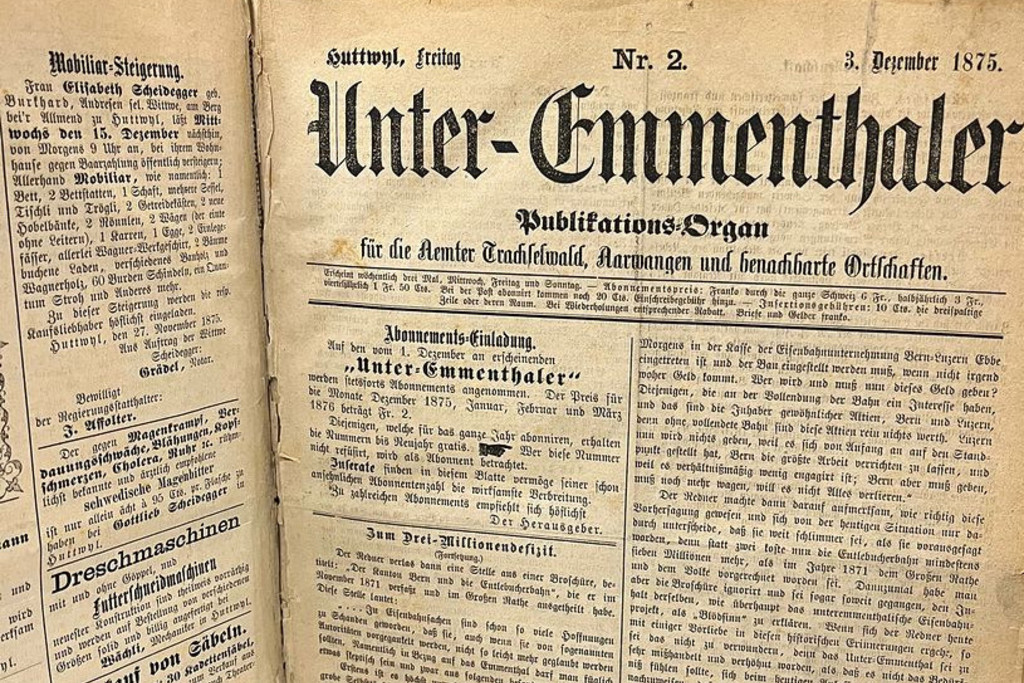The Federal Council tried to strike its own middle course. Is that not a legitimate way of going about things?
There are many Swiss approaches that I like, even if some of the political outcomes leave something to be desired. At least our system establishes broad support for the decisions that are made. Even in a pandemic, it is not all about restrictions. There are political intricacies to take into account. But to think that a virus will be more amenable to us because we are Swiss? As much as it pains me to say it, you cannot negotiate with a virus.
Do you think economic interests were prioritised ahead of people’s lives, as critics are suggesting? Does the pandemic show that society has its priorities wrong?
It is a mystery to me why we have to pit the economy against human lives in the first place. Do you really think the economy will flourish if the population is sick and mortality rates soar? Does the economy exist in some sort of parallel universe in which other laws apply? It does not. Even now people are still at it, saying that we should open up the economy as soon as possible. I am sick of hearing the same fact-denying arguments over and over again. You can call it my own form of Covid fatigue.
It is as if certain politicians and a proportion of the population have turned into whiny teenagers who won’t take no for an answer. There comes a point when you want to say: “Go out this evening if you must. Drink as much as you like. Here are the car keys. Now clear off.”
It is not only the myriad restrictions that people currently resent, but also the lack of clarity. They feel disoriented.
Peter Schneider
For a long time, the high mortality rate was less of a public concern. How come?
It took a while for us to realise that care homes had basically turned into death traps. I thought the consequent rhetoric was awfully callous. We had the beard-stroking brigade telling us via the media that we all have to die sooner or later. The elderly were urged to make out living wills, so that intensive-care units would not have to resort to triage. Why go through the ordeal of being put on oxygen? Let them all die peacefully of Covid instead. By the way, I caved in myself and filled out my own living will.
Dare we ask what you wrote?
I said I wanted to be kept alive at all costs and not treated by someone infected with Covid. Ironically, it does not hurt at all to think about your own mortality now and again. Anyway, the fact that the authorities failed to act earlier to counteract a second wave is the real scandal. They said the public would not swallow a second lockdown, yet there was no lack of solidarity within the population during the first lockdown. No one said, “Covid is only dangerous for old people and heavy smokers, why penalise us?” Then the debate about Covid deaths was turned on its head at Christmas. Suddenly everyone wanted to hug granny and grandad again but couldn’t. It was over all the newspapers. I have never read so much drivel.
Switzerland was nowhere near as good at fighting the pandemic as many thought. Does this change our opinion of Switzerland, where everything is meant to go like clockwork?
Not really. If you have an inflated view of Switzerland, you are probably not that concerned. Actually, you are more likely to think that the middle course was terribly un-Swiss. And the rest of us are probably too realistic or fatalistic to have been incredibly surprised. But this means it could be hard to restore confidence when future crises come around. It certainly will not be the last pandemic we have.
Will Covid-19 change Swiss society?
No. The pandemic and its sub-plots provide more than enough fuel for everyone to feel vindicated. The best we can hope for is that the powers that be get their act together. Developing a better track-and-trace app would be a good start. Sobering it might be, but Switzerland never was and never will be a special case. But nor is everything bad here either. We can wallow in self-criticism if we are not careful. Admittedly, Switzerland has not covered itself in glory over the past year or so. Nevertheless, many things have functioned very well. And to be fair, other countries that were doing better than us at one stage are also experiencing their second or third wave.
![[Translate to English:]](/fileadmin/_processed_/c/d/csm_283259_b411da83c0.jpg)













Comments
Comments :
What an insightful and honest comment from a Swiss colleague. Living in New Zealand, we have been successful in eliminating the virus from our population, but it has come despite the clamour of some nay-sayers who took up the views of many Swiss and their leaders. The authorities held their nerve and followed scientific advice. Viruses need to be treated as infectious agents and do not make exceptions for commerce or personal preferences. As said by Dr Schneider you cannot have a healthy workforce if they play second fiddle to business interests. Refreshing to read!
Es interesante pensar lo que acontece en el mundo cuando TODOS están sumergidos en el mismo mal y surge cómo imposible de evitar reveer la posibilidad de la finitud del otro reflejada en uno mismo. Pensar eventualmente y cada tanto en la muerte podría llevar a un mundo más conciente de las otras muertes, de aquellas pérdidas inevitables diarias que simbolizan los límites de los unos y los otros en una pandemia.
Je suis étonnée de lire cet article, moi qui pensait que la Suisse était au dessus de tout soupçon ..il y a du laisser aller, ça ne lui ressemble pas. Mais aujourd'hui il faut s' attendre à tout hélas. Mais après tout, nous sommes tous faillibles, l' important c'est de reconnaitre ses erreurs et de faire mieux au prochain pépin . Maüs.
Enfin un point de vue aussi objectif que possible ! MERCI. Vivant en France, j'ai suivi les mesures prises en Suisse contre l'épidémie en parallèle des restrictions imposées en France. A de moult occasions, je me suis dit "ils ne prennent pas sérieusement ce virus, ils veulent protéger l'économie, le gouvernement fédéral tergiverse, alors que l'épidémie avance , ce pays si riche n'en fait pas assez pour aider les restaurateurs et commerçants,... Etc .." Encore aujourd'hui, je suis sidérée de voir que les gens se déplacent, vont manger dans un restaurant du canton voisin, vont dans les commerces, et peuvent se retrouver à 10 personnes, voire plus dorénavant sur les terrasses, dans les musées, au cinéma ! C'est pas sérieux !
Merci pour cet article, cet homme est d'une grande lucidité. Je n'ai pas a jugé du choix de chaque pays dans la gestion de ce virus, la vie de chacun doit rester la primauté.
Ich fand den Artikel interessant und stellte fest, dass was mir hier in Mexiko z.T. zu übertrieben vorsichtig vorkommt während der ganzen Pandemie in der Schweiz ev. nicht genug Vorsicht geboten wird. Einmal mehr erlebte ich das Gefühl, dass es keinen "richtigen Weg" gibt, doch am Ende der Wert eines Menschenlebens eigentlich an erster Stelle stehen sollte. Alle anderen Herausforderungen, nicht um sie herunterzuspielen, sind am Ende eben einfach Hürden die zum Leben dazu gehören.
The review was not treating the subject (the virus) with a profound understanding. It seems lacking human understanding, the pain, the uncertainties and not knowing what a new future will bring to the generations to come. It has changed the life of most of us, and this is a reality. I wished I had a better understanding of how the country feels. Thank you.
Ich hatte eher erwartet zu lesen, was mit der Aggression passiert, wie wir es aus anderen Ländern kennen: die ganze Zeit zusammen zu Hause zu sein, der Verlust des Kontakts zu Familienmitgliedern wie Grosseltern und Freunden, die Schwierigkeiten beim Lernen durch Zoom, sowie die Sorgen um die unbekannte Zukunft.